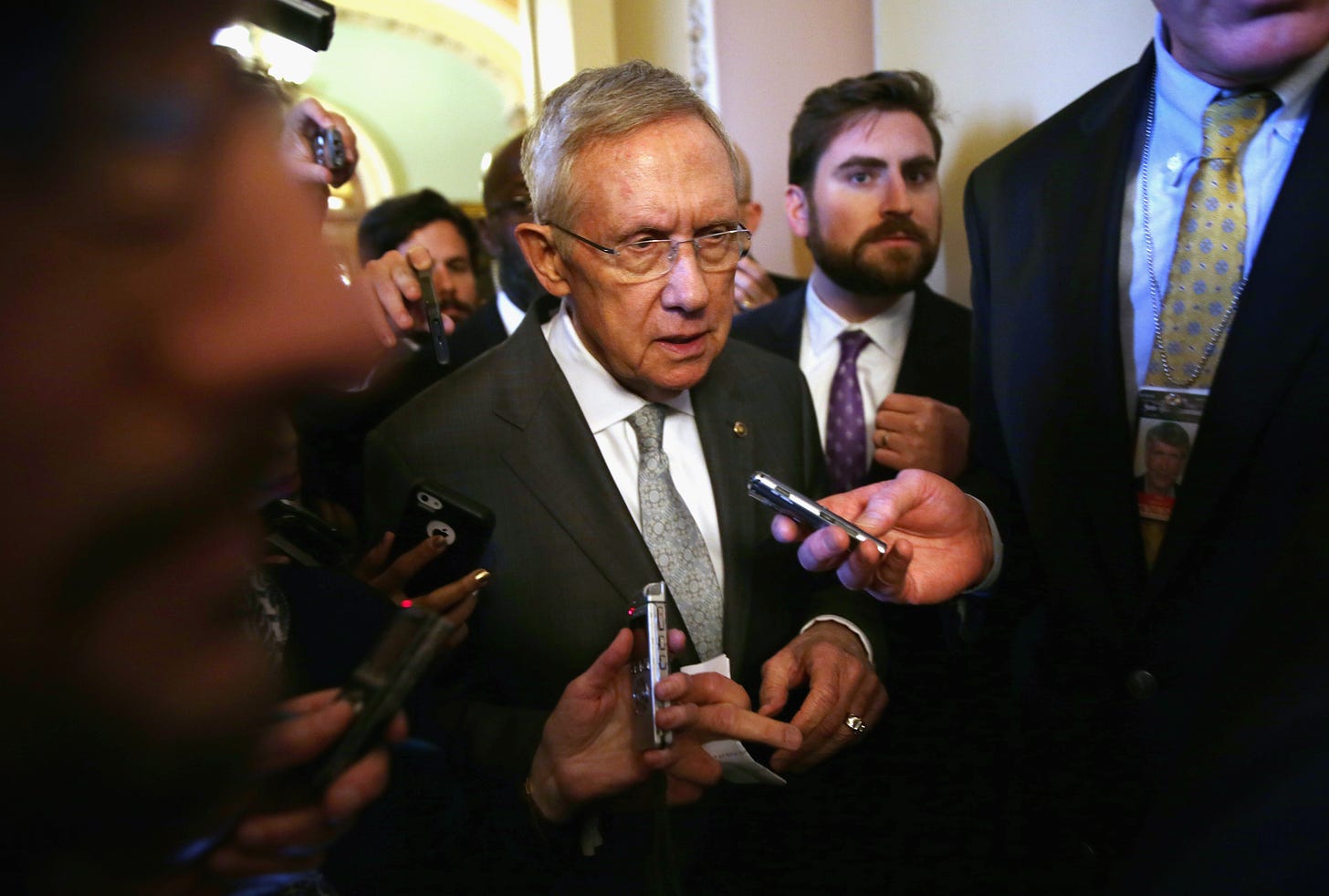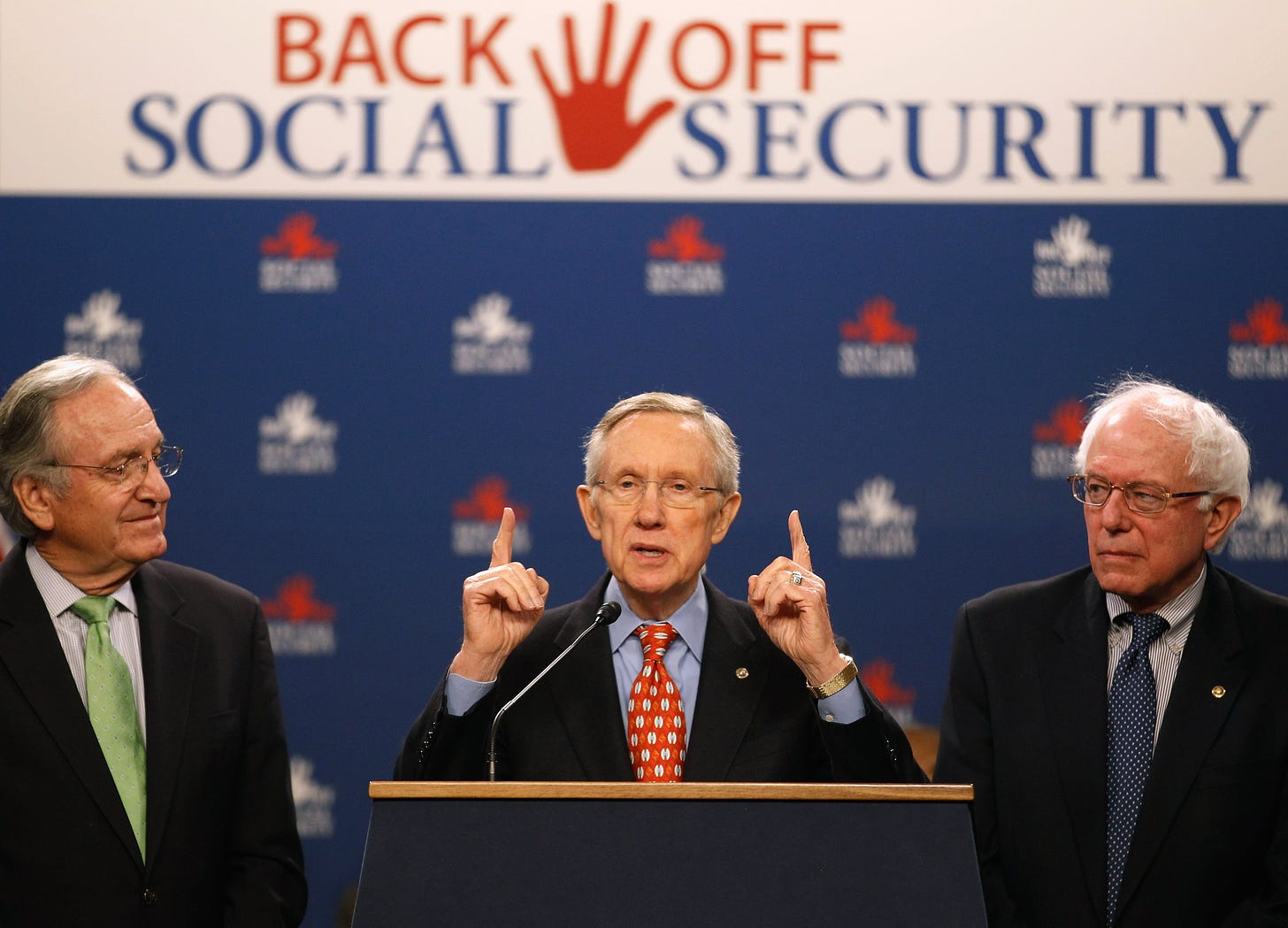I wrote a piece for Politico looking at the legacy of Harry Reid, who died this week after a four-year battle with pancreatic cancer. As always, I encourage everyone to read the whole thing — it’s about the ways that Reid helped progressives advance their goals, at times in ways that were very difficult for the public to see.
One of his most important skills was his ability to find and elevate effective lefties to positions of influence. This had a much broader effect on the political culture in Washington than the legislation he shepherded into law. Reid did this in many ways — you can see alums from his staff everywhere that good things are happening — but also in filling appointments. He helped recruit an obscure Congressman from Vermont named Bernard Sanders to run for Senate. It’s hard to imagine Sanders’ presidential bid without his tenure as a Senator, and it’s hard to imagine the American left today without Sanders’ 2016 run.
It’s also hard to imagine the 2016 Sanders run without the work that Elizabeth Warren did in Washington during the Obama years. The 2020 campaign unfortunately opened a rift between Sanders and Warren, but before that (and since, really) her work shined a light on key issues that Democrats had simply ignored or misunderstood. The financial crisis gave them both an opportunity to demonstrate how the American political system distributes wealth and power up the income ladder, and the hearings, speeches and events they held shifted the party’s center of gravity to the left. That didn’t always result in a bill being passed into law, but the result is a Democratic Party that, for all its very obvious flaws, is much better than it would have been otherwise.
And of course the man who recruited Warren to Washington was Harry Reid — for an obscure position on something called the Congressional Oversight Panel for the Troubled Asset Relief Program. It was the sort of job in which a bureaucrat or functionary could have quietly discharged her duties and returned to academia. But once Warren had a platform in the nation’s capital, she almost immediately vaulted herself to political stardom.
One more observation. I mention in the Politico piece that Reid doesn’t get enough credit for saving Social Security in 2005. A lot of what we take for granted today about the media environment just didn’t exist in 2005. There were no lefty news sites with big audiences in 2005. There were instead some very good magazines that major newspapers generally ignored. And the ideological assumptions of the political press were much more conservative than they are today. As a result, there is no obvious, detailed paper trail in the press about just how unusual it was for Reid to fight George W. Bush on Social Security
The conventional wisdom, I think, is that Bush was just an idiot for trying privatize Social Security — it was never going to happen and he shouldn’t have tried. But I don’t think that’s right. Bush pursued plenty of terrible policies as president and got many of them enacted with bipartisan support. When Reid refused to negotiate with Bush on his proposal to privatize Social Security, Hurricane Katrina hadn’t happened. The whole second-term implosion was yet to come. Reid staked his new leadership job on a stark change of strategy for Democrats, and by doing so prevented one of Franklin Delano Roosevelt’s signature achievements from being shipped off to Wall Street. That act alone should put Reid squarely in the New Deal tradition for historians.
Here’s the story.





